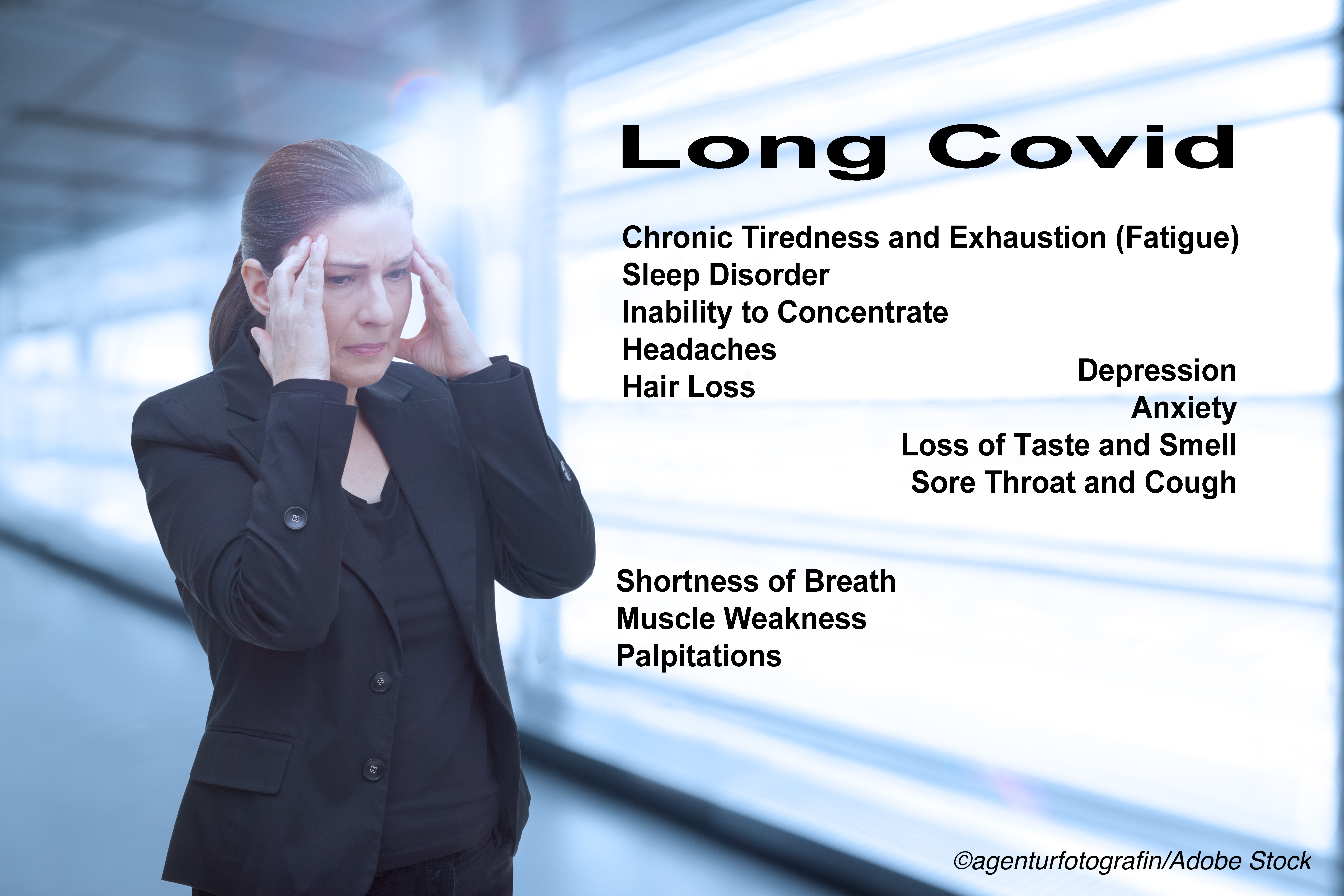The risk of becoming a Covid-19 long hauler was low among people who did not require hospitalization during acute SARS-CoV-2 infection in a nationwide cohort study from Denmark.
With the exception of a slightly increased absolute risk for venous thromboembolism, SARS-CoV-2 positive people had little increased risk for severe acute complications and new onset chronic disease compared to people with no history of infection.
The study, which followed subjects for up to six months after SARS-CoV-2 testing, showed small increases in dyspnea and initiation of bronchodilator therapy among people who had recovered from mild-to-moderate Covid-19, but prior infection was not associated with an increased risk for emergency department visits or hospitalization due to other symptoms previously reported in long Covid.
People with a recent history of mild-to-moderate Covid-19 also visited general practitioners and outpatient care facilities more often than those with no history of infection, “which could indicate persistent symptoms that do not lead to specific drug treatment or hospital admission,” wrote researcher Anton Pottegard, PhD, of the University of Southern Denmark, and colleagues.
Findings from their population-based study of data from Danish prescription, patient, and health insurance registries were published online May 10 in The Lancet Infectious Diseases.
“The absolute risk of delayed acute complications after SARS-CoV-2 infection not requiring hospital admission is low, although late venous thromboembolism might occur,” Pottegard and colleagues wrote.
The study included data on people with a positive or negative RT-PCR test for SARS-CoV-2 in Denmark between Feb. 27 and May 31, 2020. Delayed acute complications, chronic disease, hospital visits due to persisting symptoms, and prescription drug use were identified for study participants.
Data from non-hospitalized SARS-CoV-2-positive and matched SARS-CoV-2-negative people from two weeks to six months after a SARS-CoV-2 test were used to obtain propensity score-weighted risk differences (RDs) and risk ratios (RRs) for initiation of 14 drug groups and 27 hospital diagnoses indicative of potential post-acute effects.
Among 10,498 people who tested positive for SARS-CoV-2 in Denmark during the period of interest, a total of 8,983 (85.6%) were alive and not admitted to hospital 2 weeks after their positive test.
The 1:10-matched SARS-CoV-2-negative reference population not admitted to hospital consisted of 80,894 people.
The analysis revealed:
- Compared to people without SARS-CoV-2 infection, the infected population showed no significant increased risk of initiating new drugs (RD <0.1%) except bronchodilating agents, including short-acting β2-agonists (1.7% of positive patients vs 1.3% of negative patients; RD +0.4%; 95% CI, 0.1–0.7: RR 1.32; 95% CI, 1.09–1.60) and triptans (0.4% vs 0.3%; RD +0.1%; 95% CI, 0.0–0.3: RR 1.55; 95% CI, 1.07–2.25).
- There was an increased risk of receiving hospital diagnoses of dyspnea among the Covid-19 patients (1.2% vs 0.7%; RD +0.6%; 95% CI, 0.4–0.8; RR 2.00; 95% CI, 1.62–2.48) and venous thromboembolism (0.2% vs. 0.1%; RD +0.1%; 95% CI, 0.0–0.2: RR 1.77; 95% CI, 1.09–2.86) compared with negative individuals, but no increased risk of other diagnoses.
- Prior event rate ratio-adjusted rate ratios of overall general practitioner visits (1.18; 95% CI 1.15–1.22) and outpatient hospital visits (1.10; 95% CI, 1.05–1.16), but not hospital admission, sowed increases among SARS-CoV-2-positive people compared with those who were SARS-CoV-2 negative.
In an accompanying commentary, Lixue Huang and Bin Cao of China-Japan Friendship Hospital, Beijing, noted that the large cohort of cases and controls and the propensity score matching analysis were study strengths, while the limited number of symptoms examined by the investigators was a study limitation.
“In addition, the prevalence of the persistent symptoms in patients with Covid-19 was about 1%, which was lower than in a previous study, which showed a rate of 5-15%,” they wrote. “Given the inherent nature of this type of registration study, there is the possibility of greatly underestimating the actual prevalence, because there are many reasons that patients with persistent symptoms might not visit the healthcare service, such as symptoms being mild, not having health insurance or access to health care, and the risk of reinfection when visiting a health-care facility during the Covid-19 pandemic.”
They concluded that given that most cases of Covid-19 involve mild symptoms, identifying long-term consequences of infection in populations with asymptomatic or mild-to-moderate disease is “crucial.”
“Despite the limitations of this type of cohort study, the results… provide evidence of the increased risk of lasting sequelae for a population that should not be ignored—patients with Covid-19 who are not admitted to hospital. In the future, follow-up clinics are needed to establish longer-term outcomes in this population and explore strategies to prevent and mitigate sequelae of Covid-19,” they wrote.
-
The absolute risk of delayed acute complications after SARS-CoV-2 infection not requiring hospital admission was found to be low in the nationwide cohort study from Denmark.
-
Researchers reported small increases in venous thromboembolism, dyspnea, and initiation of bronchodilator therapy among people who had recovered from mild-to-moderate Covid-19.
Salynn Boyles, Contributing Writer, BreakingMED™
No funding source was reported for this research. Researchers Anton Pottegard and Jesper Hallas reported funds paid to their institution for participatin in research projects funded by Alcon, Almirall, Astellas, AstraZeneca, Boehringer INtgelheim, Novo Nordisk, Servier and LEO Pharma, outside the submitted work. Commentary writers Lixue Huang and Bin Cao declared funding by the Natiural Science Foundation of China and Chinese Academy of Medical Sciences Innovation Fund for Medical Sciences, and others.
Cat ID: 190
Topic ID: 79,190,730,933,190,926,192,927,151,928,925,934




Create Post
Twitter/X Preview
Logout